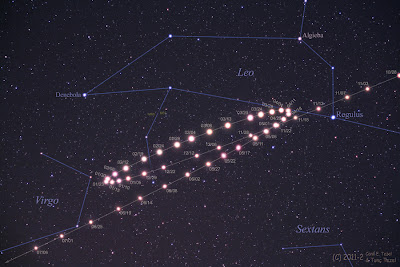This image shows how we see the orbit of Mars from earth. As you probably know this behavior was very troubling to many early astronomers.
It was one of the main pieces of evidence that helped Copernicus realize that the Sun was at the center of the solar system…
Many people assume that this was the first time the idea had come up, but it had been bouncing around western thought since the third century B.C.
In the 5th and 9th century the theory was a bit of a hot topic in the church and outside of it.
During the Late Middle Ages, Bishop Nicole Oresme discussed the possibility that the Earth rotated on its axis, while Cardinal Nicholas of Cusa in his Learned Ignorance asked whether there was any reason to assert that the Sun (or any other point) was the center of the universe. In parallel to a mystical definition of God, Cusa wrote that “Thus the fabric of the world (machina mundi) will quasi have its center everywhere and circumference nowhere.”
In many ways the controversy surrounding Nicholaus Copernicus, who was a catholic clergyman, was not about “traditional religion” vs “new science” BUT instead was an issue of a NEW WAY of reading the Bible in conflict with an old theory (with a new methodology to prove it)
The rise of “humanism” created a culture that drew people to “return to the sources” for truth… This is one of the major cultural factors that caused the reformation as Luther, Zwingli, and Calvin looked to the bible with the new lens of Sola Scriptura.
Interestingly, it was protestants like Luther who first took issue with Copernicus. (Luther condemned him in 1539). There was no one who saw heresy in the theory until the 17th century when some Jesuits (an order founded in part to respond to protestants) began to attack the theory as heretical.
The 17th century condemnation may be in part due to the emergence of Galileo… In many ways history is still unsure about why the church was suspicious of Galileo, but it may have had little to do with his heliocentrism and much to do with his rejection of Aristotelian doctrine of matter (this undermined the tridentine formulation of transubstantiation)… There is so much more that can be said on this.
Science is NEVER in opposition to healthy religion, but it is in conversation with it. Too often we are content to let the two live in their own cloistered world. I would love to see further dialog between the two.













